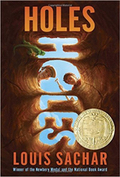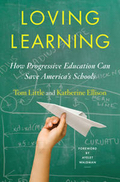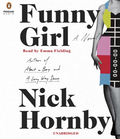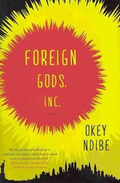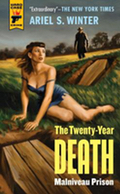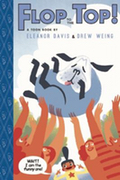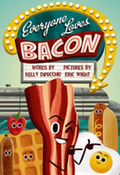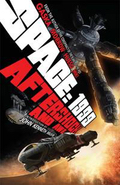Link to this review in the form of a comic strip by billba tagged coming of age • mystery
Link to this review by emilyreads tagged nonfiction
The late Tom Little, who served as head of the Park Day School in Oakland, California, for twenty-seven years, offers a brief history and a thorough examination of progressive education in the United States. It’s a love letter to schools that resist the high-stakes testing and grade grubbing of modern public education in favor of student-driven curricula that emphasize children’s interests and strengths.
Why I picked it up: I like reading about schools.
Why I finished it: The backstory (beloved head of school dies of cancer weeks after finishing the book) makes it difficult to criticize: yes, it’s a lot of sunshine and roses and has little practical advice for families who don’t have progressive options at their doorsteps. But as a parent, I found it helpful to consider how I could encourage my kids to pursue their own interests without the promise/threat of constant evaluation hanging over them.
It’s perfect for: Bernie Sanders supporters with kids. He’s a progressive Presidential candidate who’s making liberals wet themselves with joy, and this book will send them running to the independent school directory in the New York Times faster than you can say “Jane Addams.”
Link to this review by diane tagged literary • historical fiction • audiobook
It’s 1964, and all Barbara Parker wants is to become England’s answer to Lucille Ball. She gives back her Miss Blackpool crown and heads to London where she lucks into a role in a new BBC sitcom. Her beauty, wit, and comic timing make her a star. It’s a funny, smart and touching look at television history, following Barbara, the writers, the producers, and their families from the 1960s to present day.
Why I picked it up: I’ve read several Nick Hornby books (High Fidelity, About a Boy, Slam), and his writing is funny and fast-paced. I also found the time period and premise of this book appealing. I really enjoy British humor as well, and thought this would be a fun way to pass the time on my commute.
Why I finished it: There were many references to pop culture of the 60s, so there’s a nostalgic feel. And Emma Fielding’s reading grabbed my attention immediately; it was perfect for a book filled with snappy dialogue. Every character had a distinctive voice and an accent that reflected their personalities and regional differences, and it was easy to follow the conversations.
It’s perfect for: My friend, Helen, who loves all things British and (like me) grew up in the 60s. She’ll love Barbara’s feisty personality, and the way her naïve determination turns her into a star.
Link to this review by flemtastic tagged coming of age
Danny and his family run a station in the Australian Outback. The muster is coming, when they must round up all the cattle on thousands of acres and take them to market. Danny’s sister reveals her pregnancy, but not the identity of the child’s father, and a vacationing Brit, Liz (Danny calls her “the Pommie”), is having a hard time getting used to the work at the station. Then the ongoing drought causes a massive livestock die-off. Danny’s family, with the help of hired workers and their Aboriginal neighbors, has to rally to have even a chance of keeping the station going.
Why I picked it up: The book jacket described an outsider (Liz) not understanding the entrenched racism of ranchers who treat the Aboriginals as second class citizens.
Why I finished it: I loved all the Australian slang — I struggled with it early on, but was reading it like a native by the end, from everyone eating “brekkie” to the helicopter pilot who wore “sunnies.” And I was practically sweating as I read about the heat, dust, and fires as Danny’s family dealt with the drought. Their attitude about work and getting things done was inspiring.
It’s perfect for: My sons Caleb and Joshua, who now have their eyes on a trip to Australia after returning from a month-long trip to South Asia. After reading this book, they would want to add a week in the Outback for sure, and perhaps even work at an dude ranch there. The fact that the author once worked as a house girl at a cattle station (much as the Pommie does) makes this book brim with realism.
Link to this review by diane tagged coming of age
The Fitzwilliam family has it all figured out. Felix Fitzwilliam supports his family with a high-powered job that keeps him busy and only marginally engaged with his wife and son. Emma, his wife, once a promising jewelry designer, has given up her career to care for their seventeen-year-old son, Harry, who thrives despite his challenges from Tourette’s and OCD. It all runs smoothly until Emma has a massive heart attack. She survives, but Felix and Harry must completely change their lives.
Why I picked it up: I was curious to see how an author would handle a teen with these issues.
Why I finished it: Although the story appears to be a “problem novel” about Harry’s challenges and Emma’s failing health, it becomes quickly apparent this is a coming of age story for everyone involved. Harry is an amazing character who has thrived under the watchful eye of his mother, but he’s aching to prove he can get by on his own. Felix is baffled by the changes in his own life, but he realizes that he now has the chance to be something other than just a paycheck to his family. Emma is terrified that her husband and son can’t survive without her, but she learns that they both have untapped abilities. The story is handled with sympathy and humor as the relationships between the characters grow and change.
Readalikes: Marcelo in the Real World by Francisco X. Stork, the story of a teen on the autism spectrum. Marcelo has always been protected and attended a special school, but now his father gets him a job in his office so Marcelo can experience the real world. Over the course of a summer, Marcelo learns that, despite his challenges, he is capable of much more than he or his father ever thought.
Link to this review by wally tagged literary
Ike, a down and out cab driver in New York, has split from his sexually and financially demanding wife, who has left him nearly broke. After seeing it in an article, he visits a shop called Foreign Gods, Inc. where he meets a dealer who says he might consider buying the god of Ike’s home village in Nigeria. Enthusiastic about the promise of big money, Ike flies home. Everyone he meets there makes demands: customs officials want bribes, his sickly mother wants him to marry a Christian woman and bring home wealth, his sister wants money, the Christian pastor wants his unquestioning belief plus a $50,000 loan. His uncle alone is different. He invites Ike to the shrine where the village god Ngene sits. They share gin and palm wine, and his uncle and other men tell him stories. Ike plans to steal the god away.
Why I picked it up: I read a couple intriguing reviews of this book earlier this year, so I was pleased when Gene gave it to me.
Why I finished it: Ike is not the most sympathetic character. He has a serious superiority complex because of his advanced education and the fact that he’s spent some years in America, and he might be an alcoholic. He is pushed around easily by some, whether it’s by his ex-wife or various customs officials and police officers, though he pushes back against his mother’s and sister’s demands. Yet I could not stop reading this book as I wondered if he’d escape the grasp of everyone in Nigeria, betray his kind uncle, and make off with the village god. Would his desire for money bring him down to the level of the countrymen he despises?
Readalikes: Charles Johnson’s award-winning Middle Passage. Both books deal with the transport of an African god to America. In Middle Passage, the god comes with the African protagonist in a crate aboard a slave ship on which he works; in this book, it must be stolen by one of its people. In both, the consequences of stealing gods are more than anyone can handle and the heroes, if they can be called that, are complex, flawed men that troubled me even as I hoped for their success.
Link to this review by geneambaum tagged mystery • historical fiction
During a rainstorm in the spring of 1931, in the small French town Verargent, a baker investigating a backed up storm drain discovers a dead body in the street. The body proves to be that of a prisoner from nearby Malniveau Prison, and the cause of death is multiple stab wounds. Prison records not only show no recent escapes, but officials there also insist the man is not missing. The local chief of police, Letreau, and his men are aided in the investigation by Chief Inspector Pelleter, who had come to the prison to interview an infamous child murderer.
Does that murderer have anything to do with the death of the prisoner? Or the two boys from town who have also gone missing? What about the rash of unreported murders at the prison?
Why I picked it up: I was pulled in by the great shelf talker at Seattle’s Third Place Books that praised the trilogy and noted that the books are set ten years apart, and that each is written in the style of a famous mystery author. Then Stephen King’s quote on the back sealed the deal: “Bold, innovative, and thrilling…crackles with suspense that will keep you up late.”
Why I finished it: It was an enjoyable look at a small French town, and it was also a compelling mystery. The assistant warden is intent on keeping Inspector Pelleter and the local police at arm’s length (though Pelleter won’t put up with that). An American author (the dead man was his father-in-law) seems to have quite a temper. And soon shadowy, threatening figures are following the Inspector around town.
Readalikes: This book is, according to other reviews, written in the style of Georges Simenon. I’ve never read one of his books, but I’m putting Dirty Snow on the top of my list since it has the highest score on goodreads. (If you have a better suggestion as to which of his books I should read, please email me.)
Link to this review by geneambaum tagged picture book • graphic novel
Flop to the Top!
Wanda sees herself as a superstar with fans waiting for her every selfie. The press comes calling after a picture she takes with her floppy dog, Wilbur, goes viral. But Wilbur is the star everyone wants to see, not Wanda.
Publisher’s Note for Flop to the Top!: Easy-To-Read Comics Level Three
Everyone Loves Bacon
…except French Toast (but he doesn’t like anyone). Bacon forgets about his friends, alienates the other breakfast meats, and leads a fancy life. And then he finds out about the downside of fame.
Why I picked it up: I really enjoyed Davis’s How To Be Happy, so when I saw that she and her co-author/husband Weing were signing and sketching copies at SPX, I bought one.
And I’m a huge fan of Wight’s illustrations — I even bought my daughter a drawing by him at TCAF a few years ago. Plus, you know, bacon. (Yum.)
Why I finished it: Wight’s smiling, partying Bacon is hilarious: “Everyone loves me and I smell so good!” Even the despondent Canadian Bacon made me laugh: “What about me, eh?!”
Davis and Weing’s floppy dog Wilbur is just as funny. His expression never changes as he lives Wanda’s dream, partying with the famed Sassy Cat and appearing on The Star Show. In every scene his level of bling increases — from a gold chain right up to a crown.
It’s perfect for: Darcy’s daughter. I once recruited her for a funny video that died in the editing room, though there are some hilarious outtakes. I know she had visions of becoming a star, and I’m hoping these books will help convince her that she didn’t miss anything.
Link to this review by wally tagged science fiction • graphic novel
In 1999, the people of earth ship all of their nuclear waste to the moon, where the buildup creates an explosive instability that sends the moon shooting into interstellar space. The people living in Moonbase Alpha have many strange adventures while the people on earth face terrible natural disasters because of the moon’s sudden departure.
Why I picked it up: I was swept up by the mid-1970‘s British TV series, and I wanted to see if the graphic novel did the program justice.
Why I finished it: It did. The artwork divides the story in two parts. The first part pretty much follows the plot of the TV show pilot (at least as well as I can recall), and has a simply-colored, pen-and-ink quality. The second part explores the aftermath on earth as people related to Moonbase Alpha deal with the sudden disappearance of the moon — this is painted in lush, bright colors that make the natural disasters seem downright beautiful. The story also points forward (into the 21st Century!) to the sequels that will follow, and that I will surely read.
It’s perfect for: My brother Will. He will enjoy Commander Koenig, a grimly determined man of action forced to deal with sniveling bureaucrats, who is captured perfectly by the artists. (Martin Landau played him in the TV series.)
